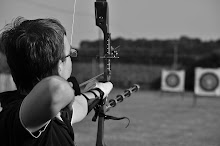"The cellular slime mold Dictyostelium discoideum grows in the soil as a population of independent, uninucleate amoebae. Upon entrance to the stationary phase, the amoebae collect in multicellular aggregates to form organized fruiting bodies composed of spores and stalk cells. Depending upon environmental conditions, the developing aggregate either constructs the fruiting body at the site of aggregation or transforms into a structure that can migrate to a more favorable location."
J Bacteriol. 1969 November; 100(2): 763-768
Peter C. Newell, Alvin Telser and Maurice Sussman
http://jb.asm.org/cgi/content/abstract/100/2/763
The area that I'm finding difficult is environment of which slime mold grows, looking up on the representation it looks to be on tree bark
I would like to take some personal stock footage of this my self (find a tree take some picks)


This sort of confirms that slime mold thrives up on trees/rotting trees. though I'm still going to question on whether they do or not/I don't want that to dictate the project and slow me up
 This was the generic image that I found on the presentation
This was the generic image that I found on the presentation
 Development of Dictyostelium (M. Grimson, R. Blanton, Texas Tech University)
Development of Dictyostelium (M. Grimson, R. Blanton, Texas Tech University)
Further searching I came across this image, that I think is the proses over a curtain period of time.
(image from http://www.ailab.si/supp/bi-visprog/dicty/dictyExample.htm)

Taking up on this life cycle of the proses of the slime mold "Dictyostelium discoideum" I may take three parts of the cycle as a three part story to the animation, though the cycle is a mini story bored with in its self.

This was the area I was going to look up on. though I'm tempted to do the whole cycle as taking the three elements of it doesn't look very self explanatory on what is happening up on these.
(sound thinking up squelching sounds, and things being quite slow....)







